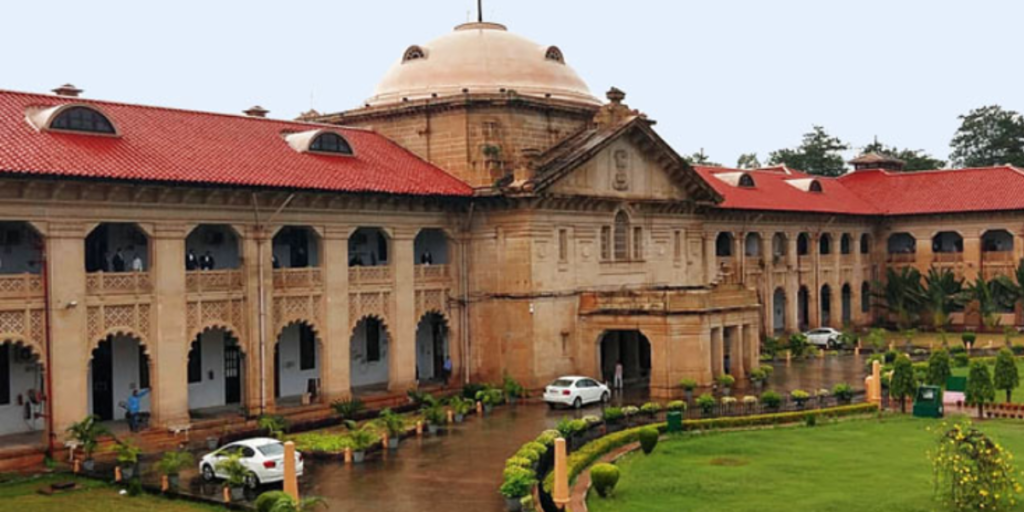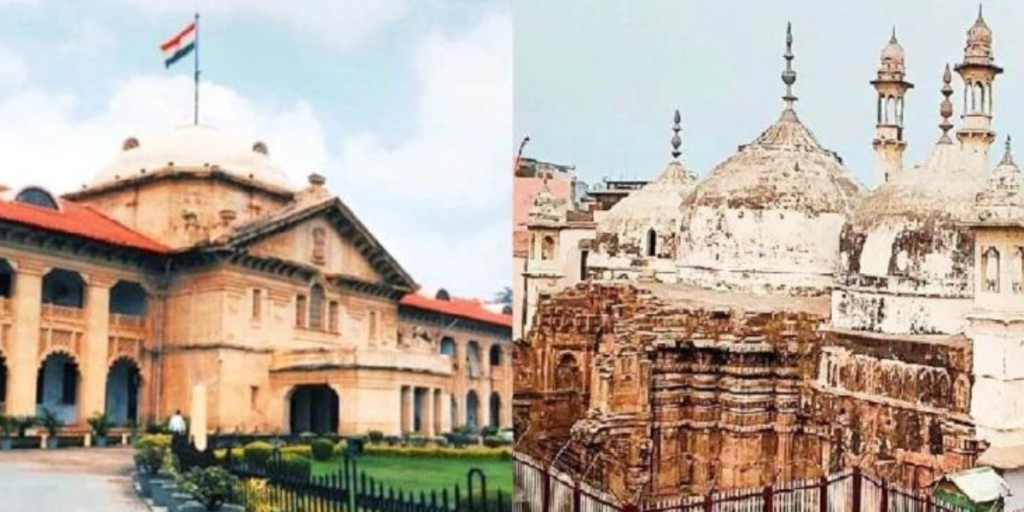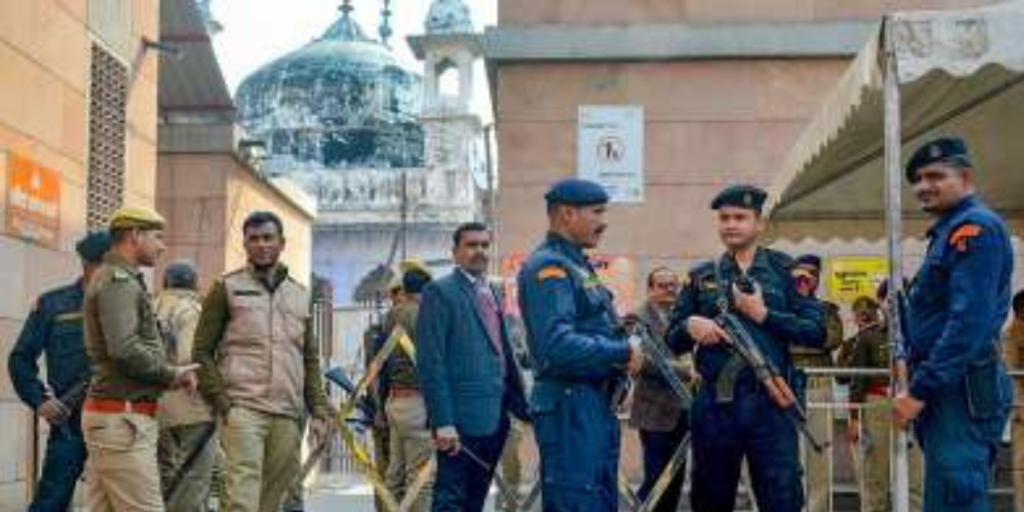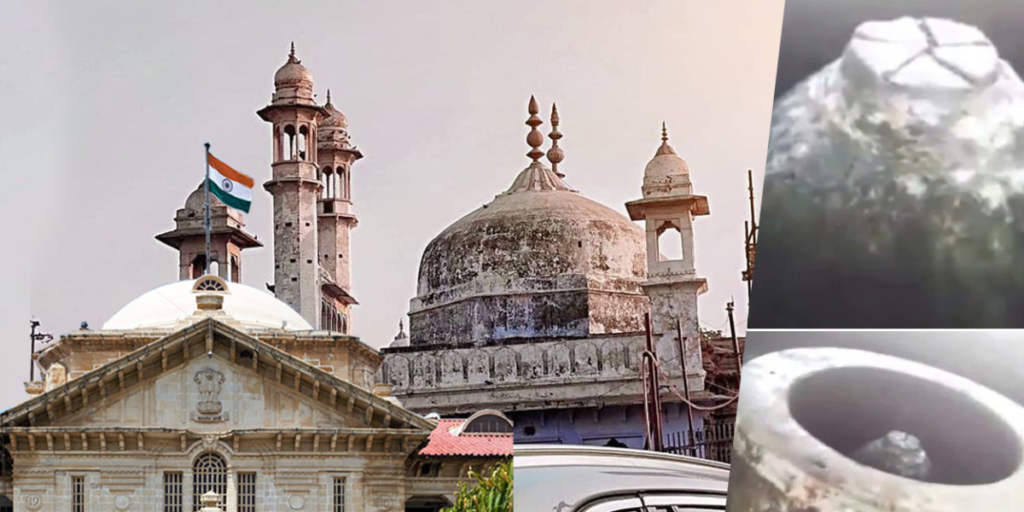The Allahabad High Court’s impending verdict on the Gyanvapi Mosque controversy has stirred considerable anticipation and debate across India. This contentious legal battle, rooted in historical and religious complexities, has attracted widespread attention due to its profound implications for communal harmony, legal precedent, and religious freedom.
Table of Contents
The Genesis of the Dispute (Allahabad High Court)
The Gyanvapi Mosque, located in Varanasi, Uttar Pradesh, stands as a symbol of India’s rich cultural tapestry and religious diversity. However, beneath its serene facade lies a contentious historical narrative that has fueled decades-long legal wrangling and socio-religious discord.
At the heart of the dispute lies the claim that the mosque was constructed atop the ruins of a Hindu temple during the reign of Aurangzeb, the Mughal emperor known for his religious policies. This assertion has been a focal point of contention between Hindu and Muslim communities, each laying claim to the sacred space and its significance in their respective religious traditions.

The recent legal saga surrounding the Gyanvapi Mosque erupted with the Varanasi District Court’s ruling allowing Hindu prayers in a specific cellar of the mosque complex. This decision, issued on January 31, sparked fervent debate and prompted legal challenges from various quarters, setting the stage for a landmark judicial showdown in the Allahabad High Court.
Pathak’s Petition and Mosque Committee’s Challenge
The Varanasi District Court’s ruling was precipitated by a petition filed by Shailendra Kumar Pathak, who claimed ancestral rights to perform prayers in the southern cellar of the Gyanvapi Mosque. Pathak’s assertion of hereditary priesthood and his demand to resume rituals within the mosque complex ignited a legal firestorm, pitting religious sentiments against constitutional principles of secularism and religious freedom.
Pathak’s contention rested on the premise of familial lineage and historical continuity, invoking the legacy of his maternal grandfather, Somnath Vyas, who purportedly conducted prayers within the mosque until December 1993. This claim, steeped in tradition and personal conviction, underscored the deeply entrenched religious sentiments and familial ties that underpin the Gyanvapi Mosque controversy.
In response to Pathak’s petition, the Anjuman Intezamia Masjid Committee (AIMC), representing the interests of the mosque, vehemently contested the veracity of his claims. The committee refuted allegations of idol worship or Hindu rituals within the cellar, emphasizing the mosque’s historical integrity and religious sanctity. The dispute thus evolved into a legal battle of competing narratives, historical interpretations, and constitutional rights.

The Role of Archaeological Survey of India (ASI) Report
Central to the legal discourse surrounding the Gyanvapi Mosque controversy is the pivotal role played by the Archaeological Survey of India (ASI). The ASI’s comprehensive assessment of the mosque complex, commissioned by the Varanasi District Court, sought to unravel the layers of history and unearth the archaeological truth underlying the contentious site.
The ASI’s findings, unveiled shortly before the district court’s ruling, added a new dimension to the dispute by corroborating claims of Hindu antiquity beneath the mosque’s foundations. The revelation that the mosque was built upon the remnants of a Hindu temple during Aurangzeb’s reign lent credence to long-standing assertions of historical injustice and religious desecration.
However, the ASI’s report also sparked fierce debate and controversy, with detractors questioning its impartiality, methodology, and political motivations. Critics accused the ASI of historical revisionism and selective interpretation, alleging that its findings were influenced by ideological biases and political agendas.

Legal and Constitutional Implications
Against the backdrop of competing narratives and historical interpretations, the Gyanvapi Mosque controversy assumes profound legal and constitutional significance. The Allahabad High Court’s impending verdict represents a critical juncture in India’s judicial landscape, wherein the principles of secularism, religious pluralism, and constitutional governance hang in the balance.
The outcome of the legal battle will not only shape the fate of the Gyanvapi Mosque but also set a precedent for similar disputes concerning religious heritage and communal harmony. The court’s decision will serve as a litmus test for India’s commitment to upholding the principles of justice, equality, and religious tolerance enshrined in its constitutional framework.
Moreover, the Gyanvapi Mosque controversy underscores the complex interplay between religion, history, and law in India’s socio-political landscape. It exposes the fault lines of religious identity and communalism that continue to challenge the country’s secular fabric and democratic ethos.
Challenges and Controversies
Throughout the course of the legal battle, the Gyanvapi Mosque controversy has been mired in controversy and procedural challenges. From allegations of judicial bias to political interference, the case has faced numerous obstacles that have tested the resilience of India’s legal system and the integrity of its institutions.(Allahabad High Court’s verdict)

The Supreme Court’s refusal to hear the mosque committee’s appeal against the Varanasi District Court’s ruling raised questions about the judiciary’s independence and impartiality. Critics argued that the court’s decision to delegate the matter to the Allahabad High Court reflected a reluctance to confront the contentious issues at stake.
Moreover, the role of political actors and interest groups in inflaming communal tensions and exploiting religious sentiments has further complicated the resolution of the dispute. From inflammatory rhetoric to polarizing agendas, the Gyanvapi Mosque controversy has become a battleground for competing visions of India’s cultural and religious identity.
Toward Reconciliation and Resolution about Allahabad High Court’s verdict
Amidst the cacophony of legal battles and ideological clashes, the quest for reconciliation and resolution remains paramount in the Gyanvapi Mosque controversy. Beyond the courtroom theatrics and political posturing lies the imperative of fostering dialogue, understanding, and mutual respect among India’s diverse religious communities.
The Allahabad High Court’s verdict, whatever its outcome, must serve as a catalyst for healing the wounds of history and forging a path toward coexistence and harmony. It is incumbent upon all stakeholders, irrespective of religious affiliations or ideological leanings, to prioritize peace, justice, and reconciliation in their pursuit of a more inclusive and equitable society.
In conclusion, the Gyanvapi Mosque controversy stands as a testament to the complexities of India’s pluralistic society and the enduring legacy of its rich cultural heritage. As the Allahabad High Court prepares to deliver its verdict, the nation watches with bated breath, hoping for a resolution that upholds the principles of justice, secularism, and religious freedom that lie at the heart of India’s democratic ethos.

